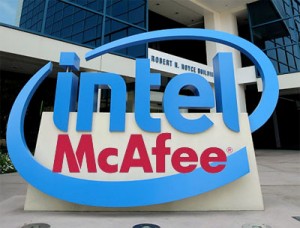 When an enterprise or a SME begins to set up their system in the cloud, their first reaction would be the security of their data. Cloud security is always a hot topic especially if you are in the public cloud.
When an enterprise or a SME begins to set up their system in the cloud, their first reaction would be the security of their data. Cloud security is always a hot topic especially if you are in the public cloud.
Intel and its subsidiary McAfee just unveiled their strategy for the security of cloud environments. Both partners aim to develop offerings that will raise the concerns of businesses on cloud computing by bringing together McAfee’s software security and Intel’s hardware-based physical security.
The aim of the strategy of Intel and McAfee security model of cloud computing is to ensure that “security can be as good or better than in a traditional environment, whether public or private cloud,” says Jason Waxman, General Manager of Cloud Infrastructure Division of Intel.
According to a study conducted by Intel with 800 IT professionals in the U.S., UK, China, and Germany, security remains the main concern of businesses in the area of Cloud Computing. Nearly 55 percent of respondents reported being concerned about a lack of data protection in public clouds and 57 percent said they would place no data subject to compliance rules in public or private clouds.
Many large cloud service providers offer good levels of security. According to Waxman, “the reality is that a lack of professionals feels in this area, if we do not find a way to give them visibility, they shall not pass to the cloud.”
“I think, of the public cloud providers, there are many that are doing an excellent job at security,” said Waxman. “In fact, when I look at how enterprises do they are as good if not better. But the reality is that there’s a perception of poor security.”
The secure cloud environments strategy of Intel and McAfee is to cover data centers, network connections, and terminals that access cloud services.
Organizations that want to deploy applications in public cloud environments where they have not installed their own equipment, need to audit the integrity of servers, said Greg Brown, CTO, Cloud solutions and data centers, in McAfee. The McAfee ePolicy Orchestrator software, dedicated to the administration of safety regulations, can be used to check if a server is secure with Cloud Technology for Intel Trusted Execution Technology, providing validation of their integrity.
On terminal side, Intel and McAfee are looking to reduce the risk posed by the tendency of bring-your-own-device (BYOD) with a set of technologies to identify users and protect data. For securing data, Intel unveiled Intel Identity Protection Technology, which provides a multi-factor authentication based material, and McAfee Cloud Identity Manager, which provides a layer of SSO and strong authentication for applications such as cloud services from Salesforce.com. These technologies will secure data while in transit over the cloud.
“The integrity assessments are at multiple enforcement points to establish confidence in private and public cloud infrastructure and ultimately, a hybrid model which most organizations seek to adopt,” said Brown.
The two companies also presented a new antivirus tool for the cloud, dubbed McAfee Management for Optimized Virtual Environments Antivirus. The tool detects malware and controls the spreading of malware and downtime. The connections manager feature monitors in and out data flow of datacenters for signs of infection.
Both the companies are also working with industry groups and standards organizations to promote safety standards for cloud computing.